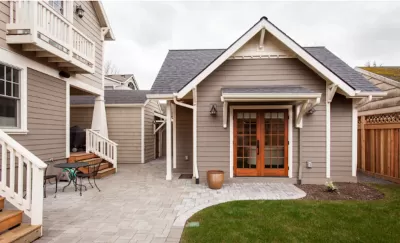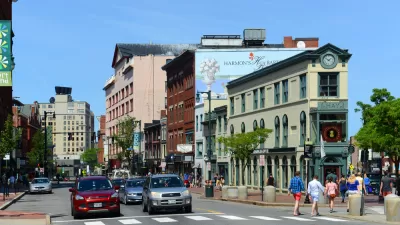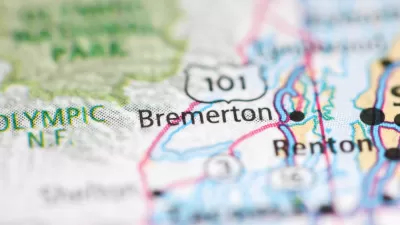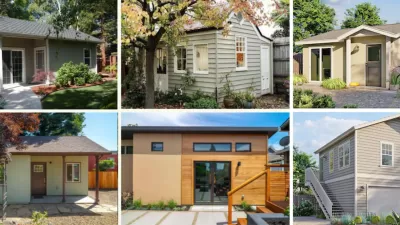Local policies and programs can encourage homeowner participation and increase the number of ADUs available as low-cost rentals.

In a report for Brookings, Jenny Schuetz and Eve Devens describe the potential of accessory dwelling units (ADUs), sometimes known as granny flats or casitas, to make a dent in the housing crisis and offer another option for affordable rental housing in residential neighborhoods.
Using Los Angeles as an example, the authors note that one of the keys to expanding ADU stock is homeowner participation. “While ADU production overall has steadily increased in recent years, it is not obvious that the typical Los Angeles homeowner wants to enter a long-term commitment to lease their ADU to low-income renters and comply with the rules governing housing subsidies.”
The authors note that the Los Angeles region offers a useful model for how ADU policies can impact affordable housing production. “In the city of Los Angeles, Los Angeles County, and Pasadena, ADUs account for over two-thirds of all housing permits between 2020 and 2022. However, no data is available on how many of these ADUs are available for rent on the open market, and how many are reserved for personal use or family members.”
The report outlines how four pilot ADU programs in the L.A. area are helping reach housing goals, each with a slightly different emphasis. “The city of Los Angeles focused particularly on matching low-income older adults with ADUs, noting that many seniors are familiar with small homes in low-density residential neighborhoods.” Meanwhile, Los Angeles County reserved ADUs for people experiencing homelessness.
Ultimately, the authors conclude, “To make ADUs a larger segment of the affordable housing market over the coming years will require both more financial support as well as substantially higher take-up rates among homeowners.”
FULL STORY: ADUs could expand the affordable housing toolkit—if local governments can work through some growing pains

Planetizen Federal Action Tracker
A weekly monitor of how Trump’s orders and actions are impacting planners and planning in America.

Chicago’s Ghost Rails
Just beneath the surface of the modern city lie the remnants of its expansive early 20th-century streetcar system.

San Antonio and Austin are Fusing Into one Massive Megaregion
The region spanning the two central Texas cities is growing fast, posing challenges for local infrastructure and water supplies.

Since Zion's Shuttles Went Electric “The Smog is Gone”
Visitors to Zion National Park can enjoy the canyon via the nation’s first fully electric park shuttle system.

Trump Distributing DOT Safety Funds at 1/10 Rate of Biden
Funds for Safe Streets and other transportation safety and equity programs are being held up by administrative reviews and conflicts with the Trump administration’s priorities.

German Cities Subsidize Taxis for Women Amid Wave of Violence
Free or low-cost taxi rides can help women navigate cities more safely, but critics say the programs don't address the root causes of violence against women.
Urban Design for Planners 1: Software Tools
This six-course series explores essential urban design concepts using open source software and equips planners with the tools they need to participate fully in the urban design process.
Planning for Universal Design
Learn the tools for implementing Universal Design in planning regulations.
planning NEXT
Appalachian Highlands Housing Partners
Mpact (founded as Rail~Volution)
City of Camden Redevelopment Agency
City of Astoria
City of Portland
City of Laramie





























